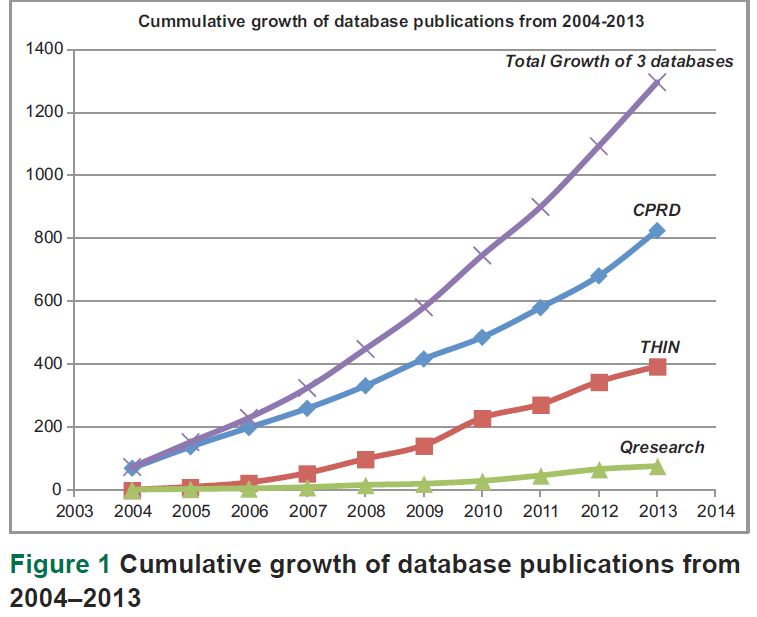 Data collected in electronic medical records for a patient in primary care can span from birth to death and can have enormous benefits in improving health care and public health, and for research. Several systems exist in the United Kingdom (UK) to facilitate the use of research data generated from consultations between primary care professionals and their patients.
Data collected in electronic medical records for a patient in primary care can span from birth to death and can have enormous benefits in improving health care and public health, and for research. Several systems exist in the United Kingdom (UK) to facilitate the use of research data generated from consultations between primary care professionals and their patients.
In a study published in the Journal of Innovation in Health Informatics, we carried out a bibliometric review to analyse the research outputs and the longitudinal growth in the number of publications that harness the three main UK primary care databases: CPRD, QResearch and THIN.
These databases collectively produced 1,296 publications over a ten-year period, with CPRD producing 63.6% (n=825 papers), THIN 30.4% (n=394) and QResearch 5.9% (n=77). Pharmacoepidemiology and General Medicine were the most common specialities featured.
The growth in publications from these databases shows that they are making an important contribution to biomedical research in the UK. To continue to promote academic research using primary care databases, General Practitioners will need to continue to provide complete and accurate data; set standards will also need to be provided to General Practitioners to encourage enthusiasm and willingness to enter the required data;and public support encouraged for the continued use of
these databases for research that benefits the health of the population of the UK.